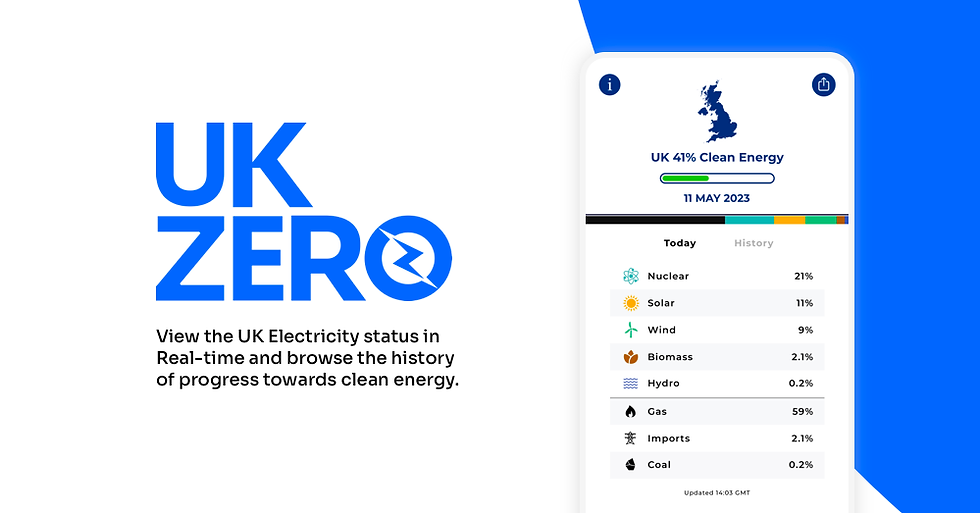Looking at the UK’s energy sources: wind power
- Simon Mosdal

- May 16, 2024
- 2 min read
Updated: Jun 5, 2024
The UK, with its long coastlines and windy climate, is a prime location for harnessing the power of the wind. Wind energy is playing an increasingly important role in the UK's transition towards a clean energy future.
Wind turbines are the workhorses of wind power. These towering structures use blades to capture the wind's kinetic energy, converting it into rotational energy. This rotation is then transferred through a shaft to a generator, producing electricity. Modern wind turbines are incredibly efficient, and advancements in technology continue to improve their capabilities.
Wind power offers many benefits. It's a renewable and sustainable energy source replenished by the constant movement of air. Unlike fossil fuels, wind energy produces minimal greenhouse gas emissions, contributing to a cleaner environment. Wind farms can also be located offshore, minimising land-use impacts compared to other renewable sources like solar.
Despite its advantages, wind power faces certain challenges. Wind is a variable resource, meaning energy production can fluctuate depending on weather conditions. Large wind farms can have visual impacts on landscapes, and some concerns exist regarding the potential impact on birdlife. Additionally, the upfront costs of building and maintaining wind farms can be significant.
Wind power is experiencing rapid growth in the UK. Onshore and offshore wind farms are becoming increasingly common sights across the country. The government has set ambitious targets for increasing wind power capacity, recognising its potential to contribute significantly to a low-carbon future.
The UK's windy future depends on balancing wind power's benefits with careful consideration of potential drawbacks. By implementing responsible siting practices and technological advancements, wind power has the potential to be a cornerstone of the UK's clean energy future.
Pros of wind power:
Renewable and sustainable energy source.
Clean energy production with minimal greenhouse gas emissions.
Technological advancements are making wind power more cost-effective.
Offshore wind farms have minimal land-use impact.
Cons of wind power:
Reliant on wind speeds, so energy production can be variable.
Large wind turbines can have visual impacts on landscapes.
Noise pollution from wind turbines can be a concern for nearby residents.
Can pose risks to birds and bats if not sited and operated carefully.
Join the movement! Download UK Zero, connect with others, and let's work together for a sustainable future.




Comments